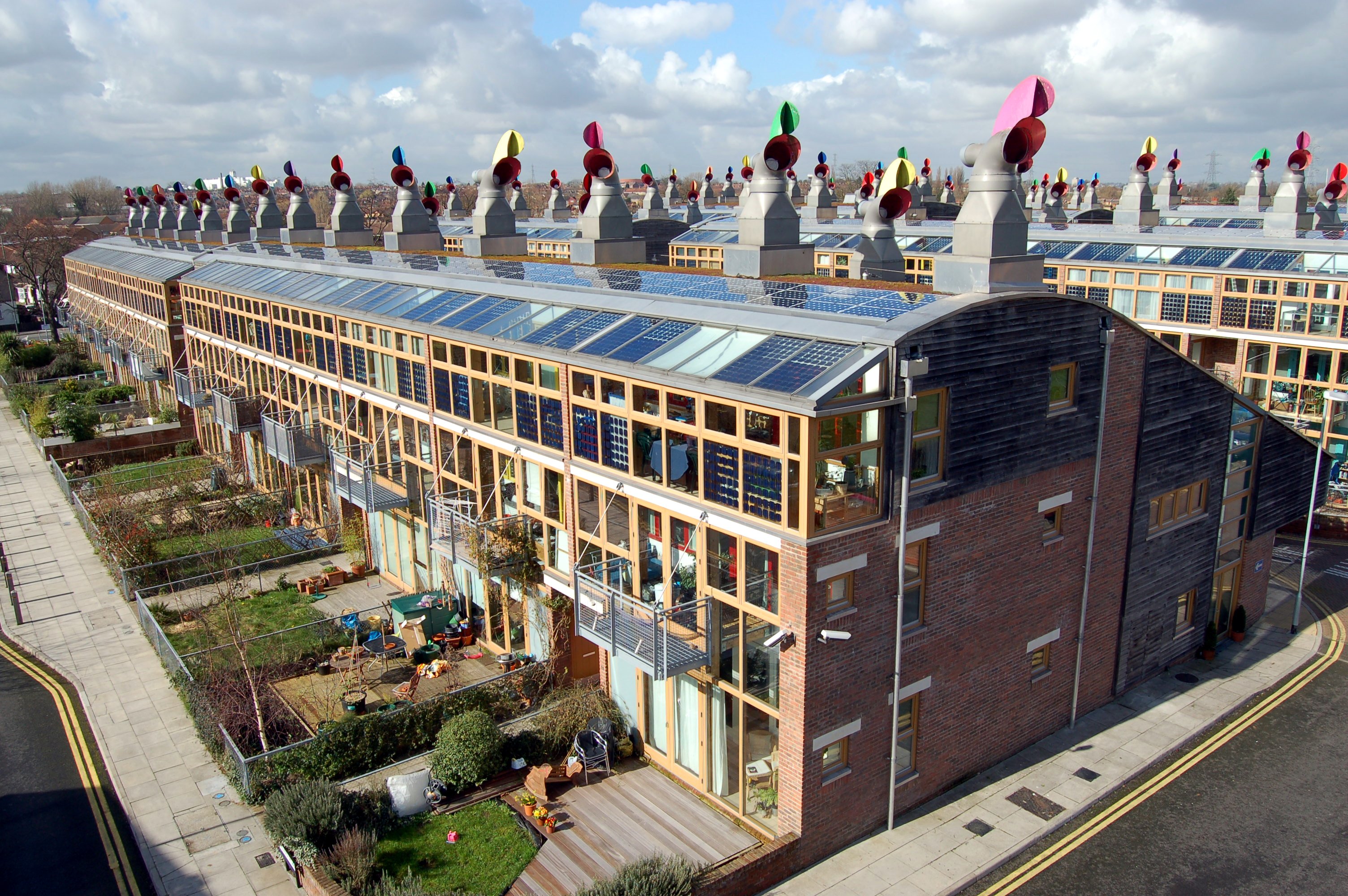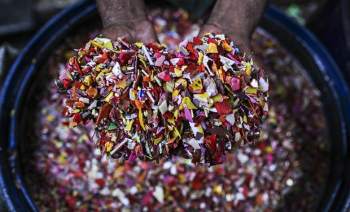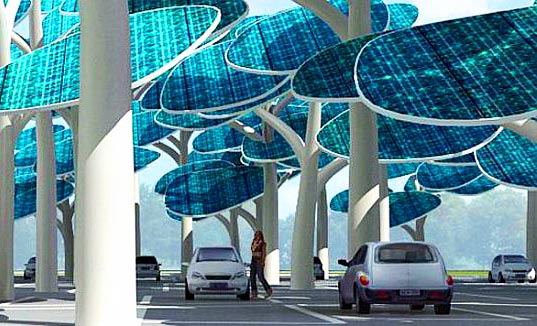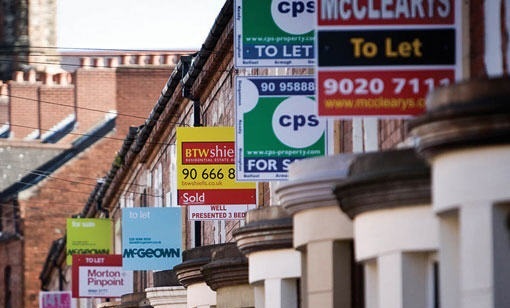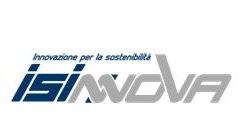Surrey, London - 2002
Domain of application: Local
Status: Existing
Stakeholders:
- Bill Dunster Architects
- Arup
- BioRegional Development Group
- Peabody Trust
- Gardiner and Theobald
BedZED is multi-unit housing development located in Hackbridge, London, England that was among the first in the UK to set a goal to be zero energy and carbon neutral. Built from 2000-2002, BedZED consists of 82 houses, 17 apartments, and 1,405 m² of workspace.
BedZED's energy system begins with energy efficient design. The homes have south facing terraces that make use of passive solar principles that benefit from the sun's natural light and heat. Offices face north to reduce the need for air conditioning, a major power user, during warm days. The complex additionally makes use of high efficiency appliances, visible meters to encourage energy awareness, triple glazed windows, and high thermal insulation.
777 square meters (108 kilowatts) of building integrated solar photovoltaics cover close to 20% of BedZED's power needs. For the first few years after construction, the remainder of the power supply came from combined heat and power (CHP) utilizing local tree waste that would otherwise go to landfills. While BedZED has been using gas to make up the difference since 2005, there has been talk of plans to replace the CHP system with a biomass boiler. This type of technology has matured since BedZED was first designed, and in addition to providing electricity, would also heat water and interiors of buildings. Also under consideration is that some of the development's energy needs may need to come from off-site renewables. In the meantime, even without CHP, the average BedZED household uses 45% les electricity and 81% less heat than people in the surrounding community.
To encourage residents to cut down on their use of cars for transportation, BedZED provides parking at the periphery of the development to promote walking, biking, and community. There is a carpool program for residents, as well as London's first car club that allows residents to share a fleet of vehicles on a pay-as-you-drive basis. Pedestrians are prioritized with additional features, such as well lit walkways and drop curbs for wheelchairs and baby strollers. These measures have resulted in a 65% drop in fossil fuel miles driven by BedZED residents in the first seven years since the development's construction.
Due to a number of innovations such as low flow toilets, water recycling, and rain water capture, BedZED residents also use only 87 litres of water a day, with 15 of them being rainwater or recycled water, compared to the regional average of 147 litres a day.
BedZED aims to also reduce energy consumption of its residents by encouraging homegrown or local organic food consumption that emphasizes non-animal products, as well as by reducing and recycling waste. According to most recent monitoring, 60% of waste is recycled, and 86% of residents buy organic food.
Ultimately, BedZED has a "One Planet Community" goal for its residents, that is, a lifestyle that can be supported by our one planet.
